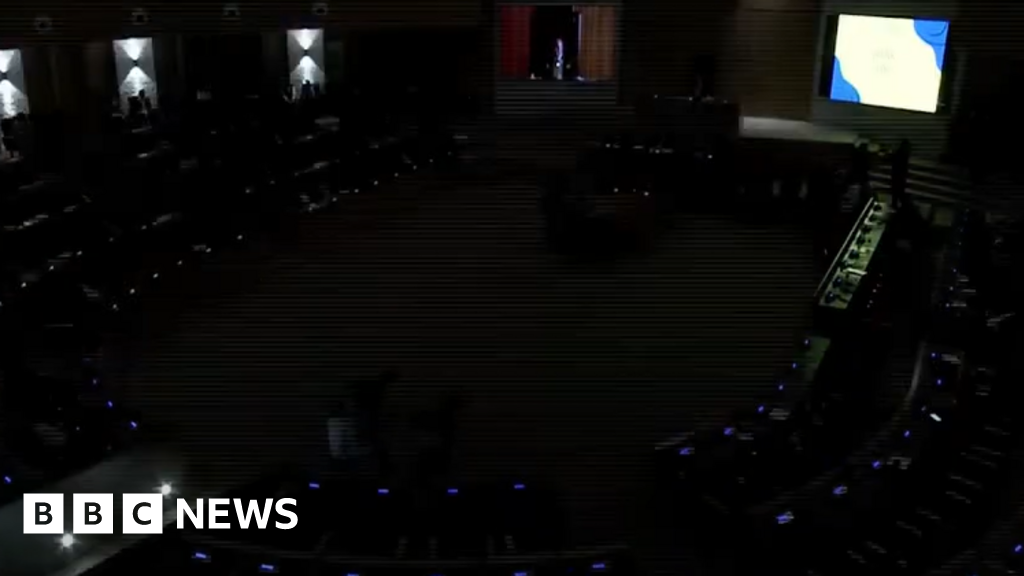WASHINGTON — Racist text messages invoking slavery raised alarm across the country this week after they were sent to Black men, women and students, including middle schoolers, prompting inquiries by the FBI and other agencies.
The messages, sent anonymously, were reported in several states, including New York, Alabama, California, Ohio, Pennsylvania and Tennessee. They generally used a similar tone but varied in wording.
Some instructed the recipient to show up at an address at a particular time “with your belongings,” while others didn't include a location. Some of them mentioned the incoming presidential administration.
It wasn't yet clear who was behind the messages and there was no comprehensive list of where they were sent, but high school and college students were among the recipients.
The FBI said it was in touch with the Justice Department on the messages, and the Federal Communications Commission said it was investigating the texts “alongside federal and state law enforcement.” The Ohio Attorney General's office also said it was looking into the matter.
Tasha Dunham of Lodi, California, said her 16-year-old daughter showed her one of the messages Wednesday evening before her basketball practice.
The text not only used her daughter's name, but it directed her to report to a “plantation” in North Carolina, where Dunham said they’ve never lived. When they looked up the address, it was the location of a museum.
“It was very disturbing,” Dunham said. “Everybody’s just trying to figure out what does this all mean for me? So, I definitely had a lot of fear and concern.”
Her daughter initially thought it was a prank, but emotions are high following Tuesday’s presidential election. Dunham and her family thought it could be more nefarious and reported it to local law enforcement.
“I wasn’t in slavery. My mother wasn't in slavery. But we’re a couple of generations away. So, when you think about how brutal and awful slavery was for our people, it’s awful and concerning,” Dunham said.
About six middle school students in Montgomery County, Pennsylvania, received the messages too, said Megan Shafer, acting superintendent of the Lower Merion School District.
“The racist nature of these text messages is extremely disturbing, made even more so by the fact that children have been targeted,” she wrote in a letter to parents.
Students at some major universities, including Clemson in South Carolina and the University of Alabama, said they received the messages. The Clemson Police Department said in a statement that it had been notified of the “deplorable racially motivated text and email messages” and encouraged anyone who received one to report it.
Fisk University, a historically Black university in Nashville, Tennessee, issued a statement calling the messages that targeted some of its students “deeply unsettling.” It urged calm and assured students that the texts likely were from bots or malicious actors with “no real intentions or credibility.”
Missouri NAACP President Nimrod Chapel said Black students who are members of the organization's Missouri State University chapter received texts citing Trump’s win and calling them out by name as being “selected to pick cotton” next Tuesday. Chapel said police in the southeastern Missouri city of Springfield, home of the university, have been notified.
“It points to a well-organized and resourced group that has decided to target Americans on our home soil based on the color of our skin,” Chapel said in a statement.
Nick Ludlum, a senior vice president for the wireless industry trade group CTIA, said: “Wireless providers are aware of these threatening spam messages and are aggressively working to block them and the numbers that they are coming from.”
David Brody, director of the Digital Justice Initiative at The Lawyers’ Committee for Civil Rights Under Law, said that they aren’t sure who is behind the messages but estimated they had been sent to more than 10 states, including most Southern states, Maryland, Oklahoma and even the District of Columbia. The district's Metropolitan Police force said in a statement that its intelligence unit was investigating the origins of the message.
Brody said a number of civil rights laws can be applied to hate-related incidents. The leaders of several other civil rights organizations condemned the messages, including Margaret Huang, president and CEO of the Southern Poverty Law Center, who said, “Hate speech has no place in the South or our nation.”
“The threat — and the mention of slavery in 2024 — is not only deeply disturbing, but perpetuates a legacy of evil that dates back to before the Jim Crow era, and now seeks to prevent Black Americans from enjoying the same freedom to pursue life, liberty, and happiness,” said NAACP President and CEO Derrick Johnson. “These actions are not normal. And we refuse to let them be normalized.”

 1 month ago
12
1 month ago
12










 English (US) ·
English (US) ·